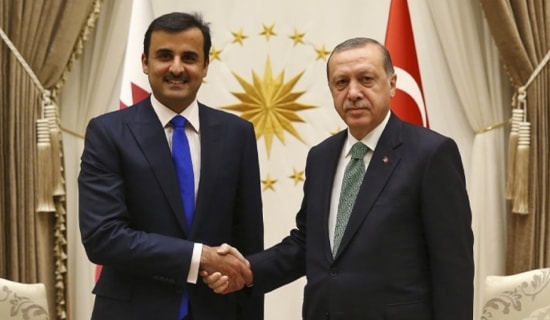
In a recent editorial, Pakistan's Urdu-language newspaper Roznama Jasarat advised the Pakistani government to not take unilateral action against terrorists in Afghanistan, saying that if Pakistan were to set such a precedent, it would be taken advantage of by enemies of the two countries.
The editorial, titled "[Pakistan] Considering Unilateral Action in Afghanistan", was published on September 22, four days after Taliban terrorists arriving from Afghanistan launched an attack on the Pakistan Air Force base in the Badhaber area of Peshawar, the capital of Khyber Pakhtunkhwa province.
Roznama Jasarat, an Islamist daily affiliated with Jamaat-e-Islami Pakistan, also taunted the Pakistani government for not considering similar action in Kashmir, where there is no need for evidence of Indian interference given the presence of 800,000 Indian soldiers.
Following are excerpts from the editorial:
"If The Afghan Government Showed Laziness, Pakistani Forces Might Take Action On Their Own [By Launching Counter-Terror Operations Into Afghanistan]"
"After the [September 18] attack on the Pakistan Air Force base in Badhaber [Peshawar], Pakistan-Afghanistan relations have become strained. Pakistan has clearly said the attack was planned in Afghanistan and it has decided to provide evidence of this to Afghanistan. Initially, Afghanistan denied that the attack was planned in Afghanistan, but what [Pakistan's] Foreign Affairs Advisor Sartaj Aziz has revealed is worth considering. He said the attackers were constantly in touch with someone in Kabul. Sartaj Aziz said the identity [of the person] fielding the terrorists' phone calls in Kabul is still being investigated.
"He also alleged that the [December 2014] attack [on the Peshawar] Army school was also planned in Afghanistan. There have been reports on Sartaj Aziz's claim that Umar Khalifa, the head of one Taliban subgroup, is hiding in the border areas, and that by providing evidence of this [to the Afghan government], a demand would be made that Afghanistan act against terrorists in hiding. If the Afghan government showed laziness, Pakistani forces might take action on their own [by launching counter-terror operations into Afghanistan].
"Sartaj Aziz also said that it is not unbelievable that terrorists [in Pakistan] are receiving instructions from Afghanistan. The most important thing that has been said is that Pakistan is considering acting on its own in Afghanistan. This situation would be a violation of what had been agreed during [Pakistani Prime Minister] Nawaz Sharif's visit [to Kabul]: That both countries would not allow their territory to be used against each other.
"It is not impossible that the [attack on PAF base in Badhaber] was planned in Afghanistan, as the foreign affairs advisor is saying, and that terrorists were in constant contact with someone in Afghanistan. Such things have happened in the past and are still happening, but if Pakistan tried to do such a thing [i.e. unilateral action in Afghanistan], then it would open a new front between the two countries."
"Our Analysis Is That If America Supports An Issue, We Should Be On Guard, And If It Opposes Pakistan On Any Issue, We Should Be Happy"
"Surprisingly, America has expressed full solidarity with Pakistan on this incident [i.e. the Badhaber attack] and also admitted that Pakistan has suffered maximum damage in the War On Terror. America also said it stands by the families affected by the Badhaber tragedy. During the entire course of the War On Terror, America has never openly acknowledged Pakistan's sacrifices but always went around it by saying that Pakistan's sacrifices in the War On Terror cannot be ignored, that Pakistan's role is very important, and so on. But for the first time, the U.S. State Department has said that Pakistan has suffered more losses than any other country in the War On Terror.
"Our analysis is that if America supports an issue, we should be on guard, and if it opposes Pakistan on any issue, we should be happy. We are concerned in this regard that since America is leaving Afghanistan, it would not accept a peaceful situation in Afghanistan; so it is just possible that it can create an explosive situation between Afghanistan and Pakistan by providing the wrong information to Pakistani intelligence.
"Once the precedent is set for unilateral action in each other's territory, the enemies of the two countries [Pakistan and Afghanistan] hiding in the border areas will be utilized. If RAW [Research & Analysis Wing, the external intelligence of India] acts by taking advantage of the situation, then our investigators would be left scratching their heads. So it is our advice that a thorough investigation should be conducted before taking any such step [unilaterally in Afghanistan]. One question is: Why was unilateral action never considered in the case of India? There is no need for any evidence [of Indian presence in Kashmir]. There is no need to provide any evidence to prove India's interference in Kashmir. The presence of an army of 800,000 is enough evidence."
Source: Roznama Jasarat (Pakistan) September 22, 2015.




